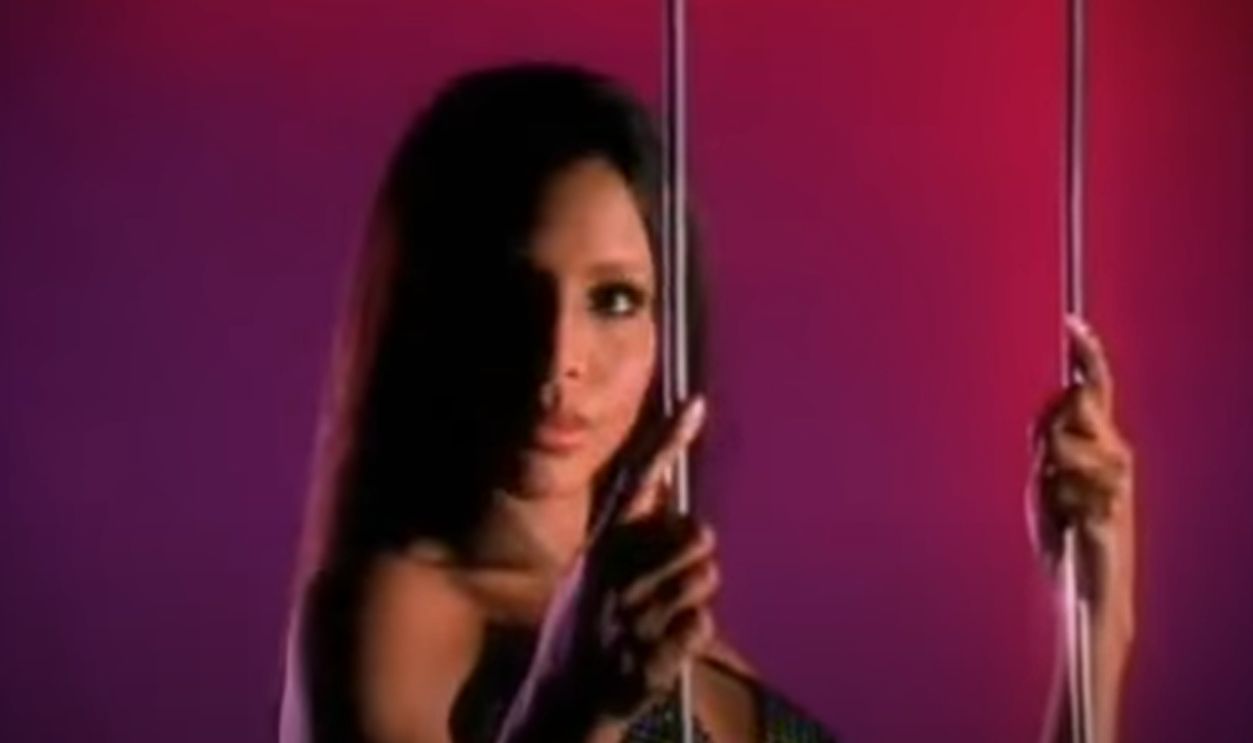They Made Me Do It
Some singers pour their souls into every note. Others? Their lawyers do. From re-recordings born out of lawsuits to albums made just to satisfy contracts, these stories show that not all music comes from inspiration—sometimes it comes from obligation. And once you know, you can hear it.
Prince: Contract in Purple Ink
Prince’s battle with Warner Bros. is one of music’s most famous. He was required to release albums on the label’s schedule, not his own. Frustrated, he scrawled “slave” on his face during performances and said, “If you don’t own your masters, your master owns you.”
 Distributed by Warner Bros. Records. Photographer unknown., Wikimedia Commons
Distributed by Warner Bros. Records. Photographer unknown., Wikimedia Commons
Prince: Defiance on Record
Albums like Chaos and Disorder were delivered quickly, almost out of spite. Critics heard inconsistency; Prince heard freedom. Even in his most contract-bound moments, his work became a quiet rebellion—proof that legal pressure doesn’t always silence creativity, but it definitely changes the sound.
 Peach / Chaos And Disorder (by Prince - 9.8.93 Bagley’s Warehouse, London, UK), Lifelinz 4ever
Peach / Chaos And Disorder (by Prince - 9.8.93 Bagley’s Warehouse, London, UK), Lifelinz 4ever
Kesha: Fighting to Be Heard
Kesha’s legal fight with producer Dr. Luke and her label kept her tied to a contract while she pursued assault allegations. The court ruled she couldn’t break the deal. Her lawyer said it best: “She just wants to make music without fear.”
 Kristopher Harris from Charlotte, NC, Wikimedia Commons
Kristopher Harris from Charlotte, NC, Wikimedia Commons
Kesha: A Voice Under Pressure
When Praying finally arrived, it sounded both fragile and fierce. “I had to learn to be strong in ways I didn’t know,” Kesha said. The emotion wasn’t marketing—it was the sound of someone who’d fought for the right to sing at all.
 Kesha - Praying (Official Video), Kesha
Kesha - Praying (Official Video), Kesha
Bob Dylan: Editing for Lawyers
Dylan’s 1975 song Hurricane named real people connected to Rubin Carter’s wrongful conviction. Columbia’s legal team warned it could lead to defamation suits. Dylan reluctantly re-recorded it with altered lyrics to protect himself and the label—a rare case of the law reshaping a protest song.
 Bob Dylan - Hurricane (Live on PBS, 1975) [RARE ORIGINAL AUDIO], Swingin’ Pig
Bob Dylan - Hurricane (Live on PBS, 1975) [RARE ORIGINAL AUDIO], Swingin’ Pig
Bob Dylan: The Softer Cut
The second version feels more careful. The words still cut, but the fury’s filtered. It’s a reminder that even a folk legend wasn’t immune to legal edits. “They said I’d get sued,” Dylan later joked. “I said, ‘Fine—just spell my name right.’”
 Xavier Badosa, Wikimedia Commons
Xavier Badosa, Wikimedia Commons
George Michael: Bound by Contract
George Michael’s 1990s lawsuit against Sony was a turning point in music law. He called his contract “professional slavery,” arguing that he couldn’t create freely under its terms. The court disagreed, forcing him to keep recording for a company he no longer trusted.
 University of Houston Digital Library, Wikimedia Commons
University of Houston Digital Library, Wikimedia Commons
George Michael: The Sound of Disillusion
Albums like Older carry that weight. In interviews, he said, “I lost the joy of it for a while.” You can hear that exhaustion between the lines—a pop star making art while negotiating with a system he’d already lost to.
 George Michael - Older (Official Video), georgemichael
George Michael - Older (Official Video), georgemichael
Toni Braxton: Bankrupt but Bound
When Toni Braxton filed for bankruptcy in 1998, she assumed it would cancel her restrictive recording deal. It didn’t. The court ruled she still owed albums to her label, meaning she had to keep working to pay off debts tied to her own success.
Toni Braxton: The Sound of Obligation
On The Heat, Braxton’s voice is steady and professional, but there’s less sparkle than before. In later interviews, she admitted she was “tired of fighting.” Still, the discipline shows—proof that resilience sometimes looks like just finishing the record.
 Toni Braxton The Heat YouTube, Edwin Gollie Makaranga Ngwira (Egoman)
Toni Braxton The Heat YouTube, Edwin Gollie Makaranga Ngwira (Egoman)
Thirty Seconds to Mars: A $30 Million Lawsuit
When Thirty Seconds to Mars tried to leave EMI, the label sued them for $30 million for failing to deliver albums. The band documented the ordeal in Artifact, exposing how easily legal language can turn creative work into collateral.
 Pawel Maryanov, Wikimedia Commons
Pawel Maryanov, Wikimedia Commons
Thirty Seconds to Mars: Turning Pressure Into Art
Their album This Is War came directly out of that fight. Jared Leto said, “We were battling for our lives, and we made a record about it.” It’s one of the few albums where you can literally hear the legal struggle in the lyrics.
 JASON ANFINSEN, Wikimedia Commons
JASON ANFINSEN, Wikimedia Commons
JoJo: Stuck in Limbo
Signed as a teenager, JoJo spent nearly a decade unable to release music because her label wouldn’t approve her material—or release her from contract. In 2013, she sued for her freedom and won, finally able to control what she recorded.
 Jennifer Zambrano from Denver, CO, USA, Wikimedia Commons
Jennifer Zambrano from Denver, CO, USA, Wikimedia Commons
JoJo: Reclaiming Her Voice
She re-recorded her early hits like Leave (Get Out), calling the project “therapeutic.” Her tone is richer and more grounded, not nostalgic. It’s the same voice, finally her own, and it shows what artistic ownership actually sounds like.
 JoJo - Leave (Get Out) (Original Video), Blackground Records 2.0
JoJo - Leave (Get Out) (Original Video), Blackground Records 2.0
Neil Young: Sued for Sounding Wrong
In the 1980s, Geffen Records sued Neil Young for making music that wasn’t “commercially viable.” The label argued his albums weren’t consistent with his image. Young countered that he wasn’t hired to imitate himself. The case was eventually dropped, but not forgotten.
 Mark Estabrook, Wikimedia Commons
Mark Estabrook, Wikimedia Commons
Neil Young: Creative Defiance
Rather than conform, Young doubled down with experimental albums like Trans and Everybody’s Rockin’. “They wanted hits; I gave them attitude,” he later said. It’s a quiet masterclass in turning corporate pressure into creative mischief.
 IT'S A ALBUM! Neil Young - Trans (1982), TheCHR83
IT'S A ALBUM! Neil Young - Trans (1982), TheCHR83
Don Henley: The Reluctant Employee
After The Eagles, Don Henley’s solo contract with Geffen led to disputes over scheduling and control. He once described the arrangement as “indentured servitude with room service.” The phrase summed up the exhaustion of delivering art under business deadlines.
 Steve Alexander, Wikimedia Commons
Steve Alexander, Wikimedia Commons
Don Henley: Playing Within the Rules
Henley’s 1980s hits are precise, polished, and calculated—songs that met expectations without giving too much away. You can almost sense the checkbox being ticked. It’s professionalism, not rebellion—but that’s its own quiet resistance.
Megan Thee Stallion: Contract by Technicality
Megan Thee Stallion’s fight with her label centered on what counted as an “album.” Her 2021 release Something for Thee Hotties was rejected as a contractual fulfillment, meaning she still owed more music. She pushed back, calling the move “a game of control.”
Megan Thee Stallion: Energy as Ownership
On Traumazine, Megan’s tone shifts—less about fun, more about focus. “I had to take my power back,” she told Rolling Stone. The confidence isn’t just performance; it’s the sound of someone who fought for the right to define her own work.
You Might Also Like:
The Best Concept Albums In Music History
Songs That Instantly Take You Back To High School











